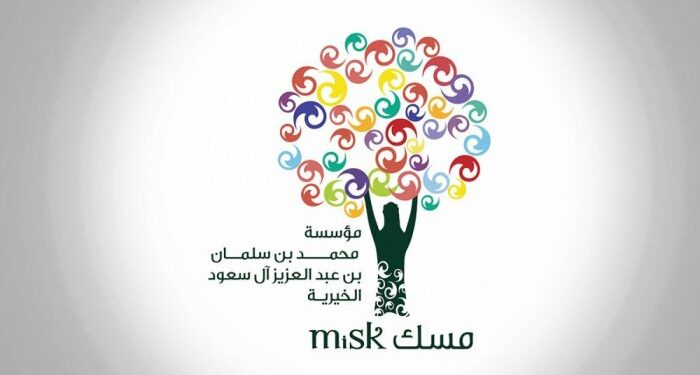
Saudi Arabia’s leadership has ordered a review of Crown Prince Mohammed bin Salman’s flagship charitable foundation after it became embroiled in alleged scandals, according to a Saudi official.
The Saudi official said the review of Misk was ordered after the US justice department appeared to refer to the foundation and one of its senior officials in a lawsuit in November against two former Twitter employees and a third man accused of spying on users of the social media platform on behalf of Saudi Arabia.
Last month Misk and Bader al-Asaker, former secretary-general of the foundation, were named as defendants alongside Prince Mohammed in a civil lawsuit filed by Saad Aljabri, a former top Saudi intelligence official, who alleges that the crown prince plotted to assassinate him.
“It [the allegations in the lawsuits] has brought scrutiny to something that has done phenomenal things,” said the Saudi official, who did not want to be identified because of the sensitivity of the cases.
“I’m pretty sure the crown prince was furious that this jewel was linked to this.” The official said the review was ongoing. Misk referred questions to the government’s media department, which did not respond to a request for comment.
Mr Asaker, who continues to have a senior role at Misk and also heads Prince Mohammed’s private office, could not be reached for comment. Riyadh has not commented on either lawsuit.
The allegations have brought scrutiny to an organisation that has been central to Prince Mohammed’s drive to woo Saudi Arabia’s youthful population and extend his brand and influence overseas.
As the 35-year-old rose to become heir apparent, his foundation sealed partnerships with a raft of international entities including the UN, The Gates Foundation, Bloomberg, Harvard University and General Electric.
But questions about Misk surfaced after the US justice department’s November lawsuit. The filing does not name Mr Asaker or Misk. But it refers to “Foreign Official-1” who was secretary-general of “Organization No 1” that was founded by a Saudi royal.
The description matches Misk and prominent US media organisations have identified Mr Asaker as “Foreign Official-1”, quoting people familiar with the case. The lawsuit alleges that the defendants accused of spying for Riyadh in 2014 and 2015 had interactions with “Foreign Official-1”, and that the person provided the defendants with “gifts, cash payments and promises of future employment in exchange for non-public information about Twitter users”.
One of the defendants in the case, Ali Alzabarah, a Saudi, was employed by Organization No 1 after he resigned from Twitter in 2015, the lawsuit said. The August lawsuit filed in the US by Mr Aljabri alleges that Prince Mohammed sent a hit squad to Canada to assassinate him in October 2018 — less than two weeks after Saudi agents murdered journalist Jamal Khashoggi in Istanbul.
It asserts that Misk conspired with Mr Asaker and Prince Mohammed to “covertly recruit individuals to serve as agents and who participated in the hunt” for Mr Aljabri in the US. The “campaign” offered employment at Misk as a “reward” for those who aided the crown prince and Mr Asakar, it says.
A person close to the Aljabri family said its concerns about the foundation were sparked in September 2017 when Misk employees repeatedly asked one of his sons and his friends for contact details for Mr Aljabri and his wife, as well as about his residency status in the US.
Around that time, Prince Mohammed and his aides sent several threatening messages to Mr Aljabri, who had left the kingdom in May 2017, trying to force him to return, the lawsuit asserts. A Saudi analyst familiar with the foundation’s work said: “People aren’t going to want the association with these issues, it could stop some of the global partnerships.
“It offers some foreign scholarships that add value, which will continue, and they do some domestic programmes which are good. The rest is international ego stuff they [Misk] pay a big premium for.” Events in its early years appeared aimed at harnessing young Saudis’ huge appetite for social media by channelling their energy into non-political content after the 2011 Arab uprisings sparked fears about the use of networking apps as tools for anti-government activism. Kristin Diwan at the Arab Gulf States Institute said Misk was “central to the whole MBS project”.
“If you look at his rise, it really comes at a time of incredible generational change in the kingdom and he has been determined to ride that wave and to control it,” she said. “Misk is at the centre of both of these projects, as a tool for encouraging and promoting change in Saudi youth, but also keeping them closely aligned with his rule.” Misk’s affiliation to Prince Mohammed caused the Gates Foundation and Harvard to cut ties with the charity after the Khashoggi murder.
Still, other organisations do partner with it. The UN envoy on youth withdrew from a Misk-organised forum last September but it remains engaged with the foundation. Misk and GE launched a leadership development programme in June, and Oliver Wyman, the consultants, ran an internship with the charity the same month, according to the foundation’s website. Oliver Wyman did not respond to an emailed request for comment.
Bloomberg, which has maintained its partnership with Misk and also plans to launch an Arab-language channel with a Saudi company that has historical links to Prince Mohammed’s family, declined to comment.
GE said its work with Misk supported “leadership training to a number of senior Saudi professionals from various Saudi government entities who have key roles in delivering the economic aims” of Prince Mohammed’s reform programme.
This article originally appeared on the Financial Times